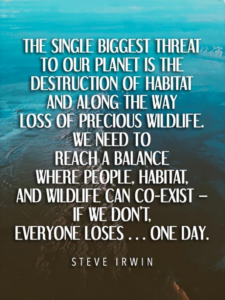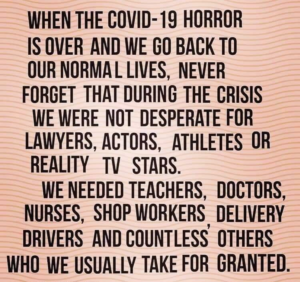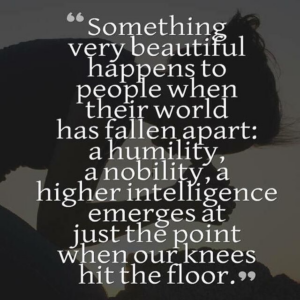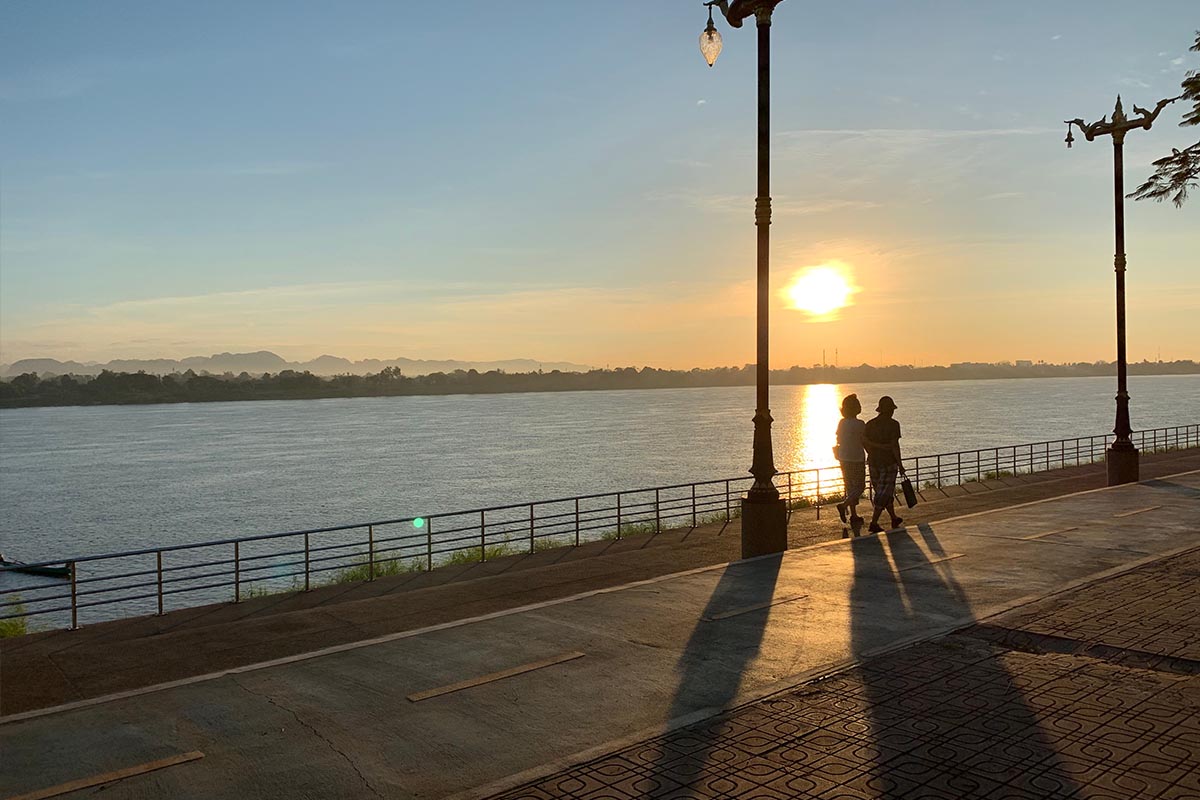If the pandemic has taken away a lot from us, it has also given us life lessons. By Vandana Kanoria
When it comes to swimming through a tsunami, there is no right way – and definitely no wrong one. You do what you have to do to stay afloat, using all your resources of courage.
This pandemic is not the first global crisis we have seen, nor will it be the last, but never in our lifetimes have we experienced days that are so strange, threatening and fraught with anxiety, “where the boundaries of our worlds stop at the walls of our personal cocooned sanctuaries. It’s an alien reality outside – empty streets, abandoned squares, cordoned-off religious centers and padlocked entertainment hubs.” Where, as Walt Whitman says, “It is not upon you alone the dark patches fall”.The degree of our acceptance and the grace with which we adapt to the sudden descent of darkness may be the greatest measure of skilful living.

“Fear is a universal experience”.
We feel fear at the possibility of loneliness, of death, of not having anything to hold on to; when faced with the unknown – and one of the most insidious and frightening are viruses and bacteria on a massive scale.Unforeseen, invisible, unforgiving and difficult to defend against, it is apocalyptic vision brought to life.
Gaining strength
But I learnt that our life couldn’t be dominated by fear. When tough times come, we gain strength, courage, and confidence, by every experience in which we stop to look fear in the face.
When my thoughts run wild, prone to anxiety and “catastrophising”, my mantra to retain sanity and thrive in adversity is to resist endless scanning of social media, and instead, tune in to credible news sources just once a day. I learnt that when fear overwhelms me prayer and the ability to hand things over to a higher being, of letting go, instantly calms me and puts things in perspective.
I have learned that it is not how big your house is but how happy and loving the home is.
The “pause in time”, brings unique and unlimited family moments. Knowingthat our loved ones are well is the most important thing. If I have learnt anything from this pandemic, it is that the things our lives revolved around – malls and multiplexes, parties and bar hopping,have all disappeared and we can live without them; it is our home and family that keeps us safe and sane. I value and treasure the little tings we do together, the deep conversations we have, laugh about something nonsensical with my grandchildren, view old family photos and films. A hug from my children and grandchildren is all I need to feel great. They are “my life jacket in the stormy sea of life.”
Everything is connected
“The environment is in us, not outside of us. The trees are our lungs and rivers our bloodstream. We are all interconnected and what you do to the environment you do to yourself.”
One of the most beautiful things that one can see is a night sky filled with stars and silhouetted against the dark, a majestic tree growing tall and strong. And so the pandemic brought home the lesson of the beauty and sacredness of nature, which for our pleasure and profit we have defiled and abused, poisoned with chemicals and disregarded the delicate interconnectedness among living things.

Air and water, two essentials on which all life thrives, have become global garbage cans; forests, natural habitats and biodiversity are all disappearing at an alarming rate leading to devastating consequences- pandemics and global warming. Plastic and technological wastes are choking the earth. Oil spills are contaminating the oceans. “Modern technology owes ecology an apology.” We are voracious consumers buying and using much more than we need. So when I read this quote: “If it can’t be reduced, reused, repaired, rebuilt, refurbished, refinished, resold, recycled, or composted, then it should be restricted, designed or removed from production”, I resolved to try and become a better citizen of this planet. Humanity is at a crossroads, and we have to choose which path to take – whether we want to live in a clean, green earth or a dystopian dark age.
Gratitude represents our ability to see miracles beyond materialism. It is one of the most transformative states of being – shifting perspective from lack to abundance. “It makes the mundane memorable”. It turns a meal into a feast, a stranger into a friend, and the messiness of life into blessings.
When I see the misery and pain inflicted by this dreaded virus, I am thankful for my privileges, and, remind myself to be grateful every moment of my life. I can stay comfortably at home with a kitchen stocked with food, reading, working, creating, and talking to my loved ones. I feel a deep sense of gratitude to the unsung heroes in the world, the doctors, nurses, caregivers, construction workers, delivery drivers, rubbish collectors, police officers, farmers and first responders, who take risks for everyone else; to local shopsthat stay well stocked and go out of their way to help their customers, while big supermarkets struggle. If there is only one thing that I can do, it is to be a support – especially to our most vulnerable – abandoned pets, migrant workers in dire need of sustenance, orphaned children…. Altruistic behavior ripples through networks. A network can spread a virus — but it can also spread happiness, help, gratitude and optimism.
There is no “right way to do” a global pandemic and nothing matters more than one’s mental health. While society urges us to use the quarantine to be more productive, everyone copes in different ways. Some of us need space and time to process the global trauma we’re facing, without feeling like we’re failing. Many people don’t have the luxury of ample free time. They are juggling, multiple roles – being impromptu cooks, counsellors, home school teachers, and business owners, sometimes working long hours at jobs – all at once, while trying to keep their sanity intact. We’re living through a paradigm shift in our culture, mourning the loss of thousands of lives, as well as the society we were all accustomed to.It has taught me to practice patience, forgiveness and compassion and to set aside judgment and negativity.
Deeper questions
Spirituality is all about gaining mastery over one’s desires so that they don’t take us on a tangent and make us do inappropriate things. Spirituality allows us to move past superficiality, to ask deeper questions about life’s purpose and meaning and the truth about existence, “fearlessly peering into the mysterious nature of life.” This has been a time of introspection; we have transformed this imposed pause into a reset of sorts. This cultural stillness has given a unique opportunity to see ourselves a little more clearly, in a ‘mindful solitude’.

The Gita teaches how to attain tranquility by showing us ways to navigate life, guided by universal values and develop a mind that operates from a problem-solving mode, free of self-created projections. One then experiences joy and grace, which changes, and heals our world and us. Using, prayer, chanting and meditation, I inch closer to that sacred place inside myself that allows me to connect with God, and brings me closer to an inner sanctuary.
While pills and gadgets proliferate, what really matters is social connection. In cities around the world, balcony singing and workouts, and other creative ways to connect with others, fill the silence of empty streets, helping people cope with coronavirus quarantines. It is heartwarming to see people at their windows or on their porches chat from a safe distance, leave food and other essentials outside their neighbours’ doors, help the neighbour with whom they had neve r before exchanged a word, and thus foster a community spirit and joyous social connection.
We humans are wired for close, nurturing relationships. My friends and family are my lifelines. Being with friends is a gift that keeps on giving. They are my unpaid therapists – as they say a good friend knows your stories but my friends have lived them with me.
We have deep, meaningful 3am conversations, comfortable silences; we laugh at ourselves and at the world, do crazy things together. Thank god for Zoom, Google duo, House party!
Power of Art
The world’s opinions and approval does not have to become our reality. There are many externals our society teaches us to chase: wealth, fame, power,six-packs, trending outfits, latest gadgets, snazzy cars, and fancy apartments.But as the law of diminishing returns shows, the initial pleasure, drastically reduces over time, a phenomenon termed “hedonic adaptation.” Money can’t buy us the vaccine that hasn’t been invented, the freedom to be where we want, or the comfort of a hug from a loved one.A lot of the time our ideas about what isa happy life, are not our own. They are sucked in from other people, from television, advertising, marketing. These are hugely powerful forces that define what we want, how we view ourselves and what we would like to like. This pandemic has given me the space to excavate my authentic self from under layers of cultural conditioning and other people’s opinions. In this solitude I can create music, even when nobody is listening; make art, which no one will see; write a short story that no one will read; enjoying what I am doing instead of “rushing towards that shining latest bit of mental bling,”has been an empowering life lesson.
Art, as Picasso says, “washes the dust of daily life off our souls.
For me, looking at and making art, reading and watching films on artists is entering into a world of carefree beauty.”I am no artist. But art, in all its forms, brings joy to my days. By experimenting, making mistakes and seeing colours and shapes dance on paper, lines forming into patterns and designs, is wildly liberating because there simply are no rules in art. Art celebrates the diversity of life and is enlivening, because it provides a safe, non-judgmental environment to explore and observe feelings throughcoloring, painting, sculpting and drawing. Enjoying or creating beauty is free.So knit, play an instrument, listen to music, paint, cook, dabble in pottery, do zentangles, make collages. An added benefit-“The key to staying sharp in old age is in your fingers. From your fingers to your brain, and back again.”
Confined at home, it is books that give us places to go when we have to stay where we are.
At a very young age I learnt that books are lifelines against the churning seas of modern life, they are “invisible noise cancelling curtains” behind which we nestle cozily into a world of imagination and possibilities. One of the greatest gifts that I ever received growing up, from my parents and some very enlightened teachers, was a love for reading. Words weave magic and books are magicians that transport us to lands both real and imagined, magic potions which make our world colourful and exciting; something interests us in a book and that leads to another book; it is a journey with no end in sight – on which we discover strange and new things, characters who fill us with wonder, and ideas that make us look the world with fresh eyes. Therefore, read widely; always have a “to-read” list on the go. “Let books flood your home and wash ashore on coffee tables, dressers, and nightstands.
We are fortunate to live in an age where most of us can text, email and video chat to connect with family and friends. Social media is often the villain in the story of life. While excessive use and mindless suffering does cause harm, recent research says that when people spend their time online communicating with people with whom they already have strong ties, it reduces depression and loneliness. In this Covid-infested world, it is hard to imagine life without online classes and courses, webinars. One of the many things that I have learned at this time is how creative people have been, in order to stay connected with others. Zoom counseling and coaching sessions, online schooling, virtual happy hours, and girls’ night out – all happens on chat platforms. Lockdown and social distancing- new words in our vocabulary and lives – have not been without challenges.
Social media is an immediate outlet for creative expression. With Instagram, Facebook Twitter, entrepreneurs conduct online businesses, artists, poets and fashion designers tantalise would-be buyers with their creations, and social and community causes are highlighted, inspiring others to contribute and participate.
“Going through things you never thought you’d go through, will only take you places you never thought you’d get to.” The great lessons of lockdown? Something to do, something to love, and something to hope for. Life is both a precious, unfathomably beautiful gift filled simultaneously with heartbreaking sweetness and beauty, desperate poverty, viruses and sunsets and music, all swirled together, and there are a thousand beautiful moments waiting for us after this whirlwind of dark clouds and storm.









